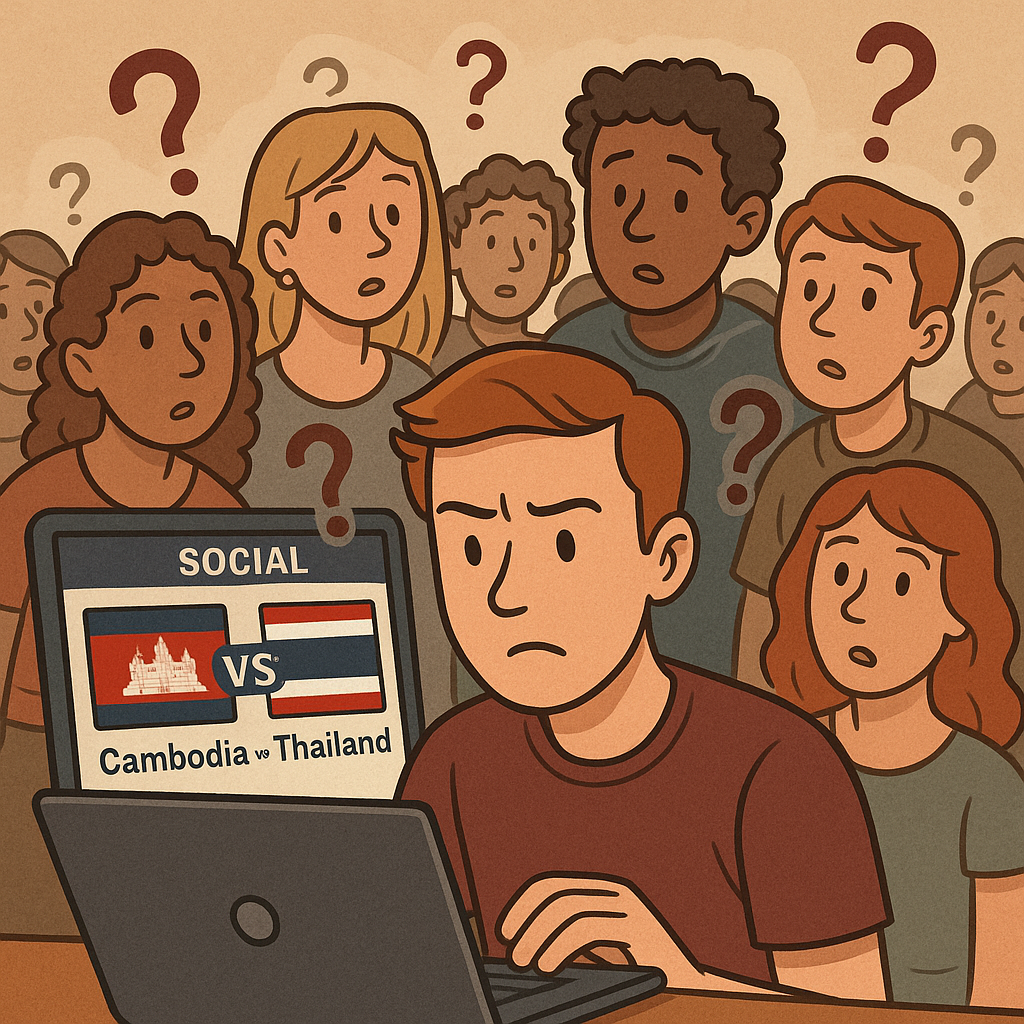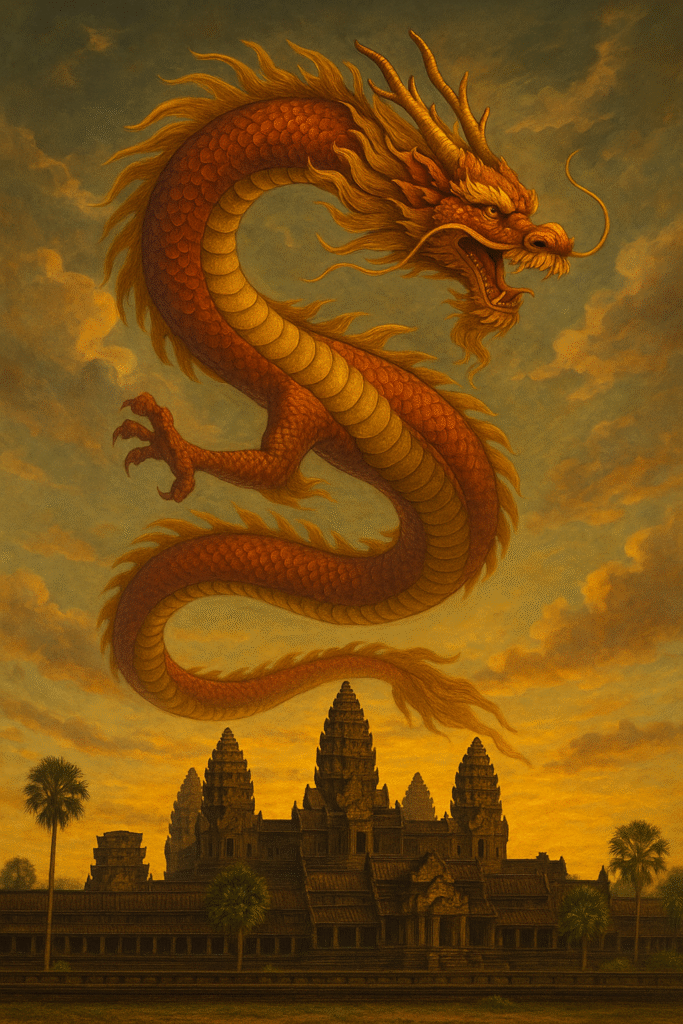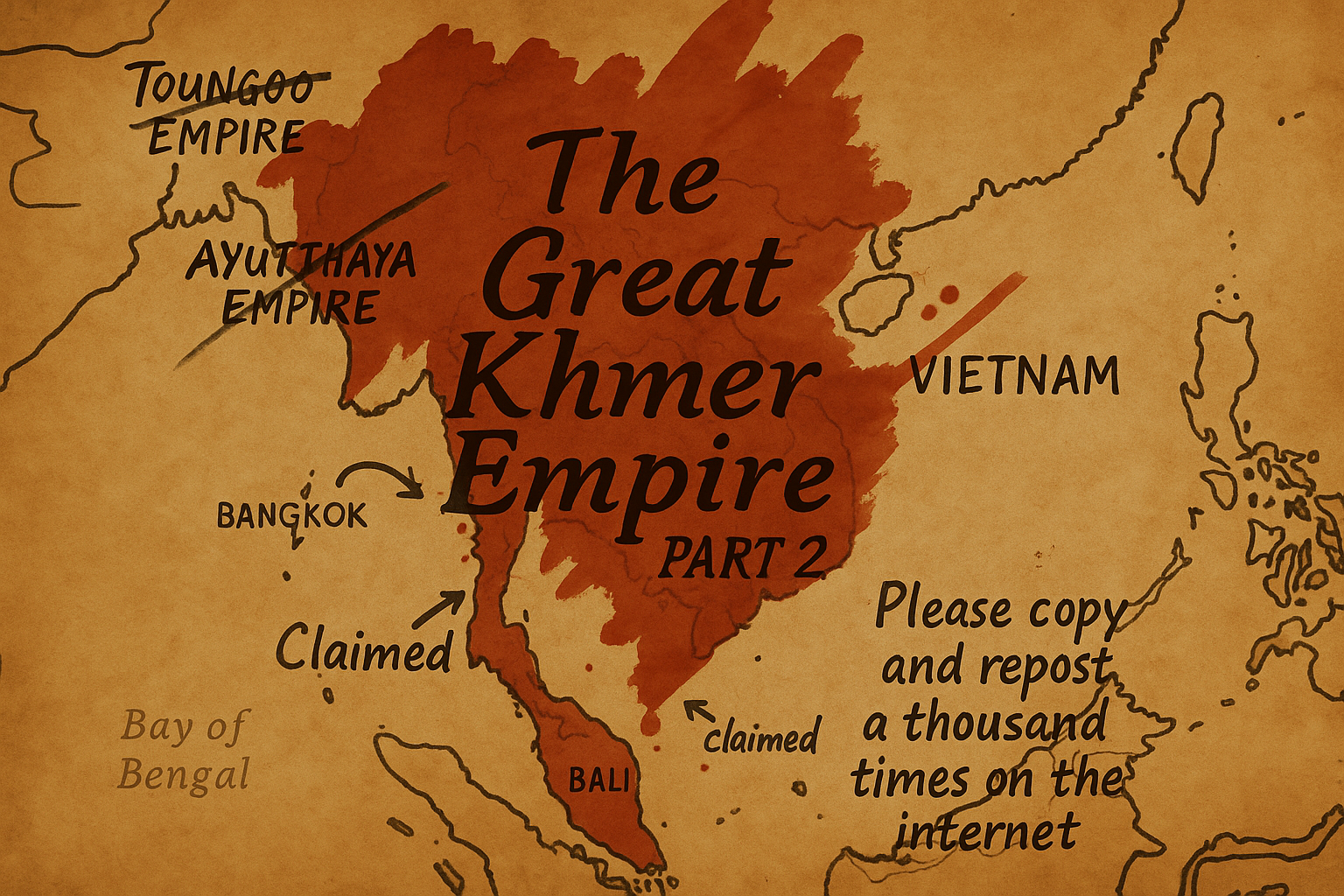Introduction
From Part 1: The Khmer Empire Rises Again – In the Age of AI and Wiki Media, many readers came away with a shared question:
“Why is Cambodia so obsessed with Thai culture?”
As this phenomenon spreads across online platforms — from Wikipedia pages to YouTube comments and TikTok videos — countless Thais and international observers have noticed a recurring pattern:
Whenever Thai culture is featured, be it food, dance, or even a viral restaurant, Cambodian accounts often swarm in, claiming:
“It’s originally Khmer.”
“Thailand stole everything.”
“Siamese thieves.”
And in some truly bizarre cases, they go even further —
Flagging Cambodian national flags on famous Thai restaurants, products, or media where Cambodia has no historical connection whatsoever.
This isn’t just random internet trolling.
It’s a sustained, coordinated attempt to reshape perception, erase Thai contributions, and recast Cambodia as the rightful origin of Southeast Asia’s identity.
In this second installment, we dive deeper.
We uncover the political incentives, economic motivations, foreign influences, and cultural psychology behind this aggressive campaign.
Welcome to Part 2:
The Khmer Empire Rises Again – Why Does Cambodia Want Thai Culture So Badly?

🎭 Why Does Cambodia Want Thai Culture So Badly?
1. It’s Proven Profitable — and Globally Famous
Thai culture has already made its mark on the world stage.
Whether it’s food, dance, fashion, or Muay Thai, it’s recognizable, admired, and marketable.
Cambodia sees an opportunity not to create, but to repackage Thai culture as their own, hoping to inherit the prestige without building the foundation.
2. A Convenient Distraction from Internal Problems
The Cambodian government has discovered that fueling nationalist sentiment against Thailand serves as an excellent distraction from domestic mismanagement.
By portraying cultural appropriation as “reclaiming stolen heritage,” the regime wins the support of its citizens, who believe they are standing up for their history — even when that “history” isn’t theirs.
Turning envy into policy:
When you can’t govern well, stir up an enemy.
3. The Shadow of China: Grey Capital and Geopolitical Games
In the case of Kun Khmer (Cambodia’s rebranded Muay Thai), a deeper layer reveals itself:
Chinese grey capital has taken interest in Thailand’s cultural assets, especially Muay Thai — but cannot control or commercialize it directly, since Muay Thai is protected by international recognition and institutions.
The workaround?
Back Cambodia’s campaign to promote Kun Khmer. Let Cambodia fight for it — and China profits from the aftermath, whether through hosting events or controlling the narrative.

4. A New Colonial Allegiance: From Siam & Vietnam to Beijing
Historically, Cambodia has always depended on either Siam (Thailand) or Vietnam for survival.
But since Chinese influence surged, Cambodia has abandoned regional cooperation and aggressively sided with China, emboldening its government to antagonize Thailand at every turn — while still tiptoeing around Vietnam due to Vietnam’s deep military and political presence inside Cambodia.
Notable actions include:
- Unilaterally canceling the Cambodia-Laos-Vietnam trilateral cooperation
- Openly claiming disputed islands from both Vietnam and Thailand
- Telling Chinese audiences false narratives about Thai culture — something they attempted in Japan but were denied due to diplomatic respect. China, on the other hand, allowed it freely.
4. A Taste of Recognition — The Joy of Finally Being Seen
For years, Cambodia was barely acknowledged by Thailand — or by many other ASEAN nations.
Now, for the first time, Cambodians are gaining regional attention, especially by openly picking fights with Thailand and injecting themselves into online debates across platforms like Reddit and YouTube.
And for some, that attention feels like validation.
By stirring controversy and attaching themselves to Thai cultural content, they gain visibility. Some even feel empowered, believing their country finally has a voice — and even tourism benefits, as misinformed foreigners assume:
“Thailand and Cambodia are basically the same.”
“If I don’t go to Thailand, I’ll just go to Cambodia — it’s probably similar.”
For a country long ignored, this newfound relevance is intoxicating.
And if all it takes is hijacking Thai culture to get it — why wouldn’t they do it?
6. Cultural Osmosis Turned Delusion
For decades, Cambodians have watched Thai television, listened to Thai music, and enjoyed Thai entertainment — often dubbed into Khmer without credit.
TV shows were translated with local voiceovers, but the Thai origin was never acknowledged.
Historical dramas and folklore films — unique to Thai culture — began to be mistaken as Khmer creations.
Even cultural elements from Southern Thailand, which Khmer culture never reached, have now been absorbed and rebranded in Cambodian perception as their own heritage.
They don’t just consume Thai culture —
they digest it until they forget where it came from.
Views: 6


Leave a Reply